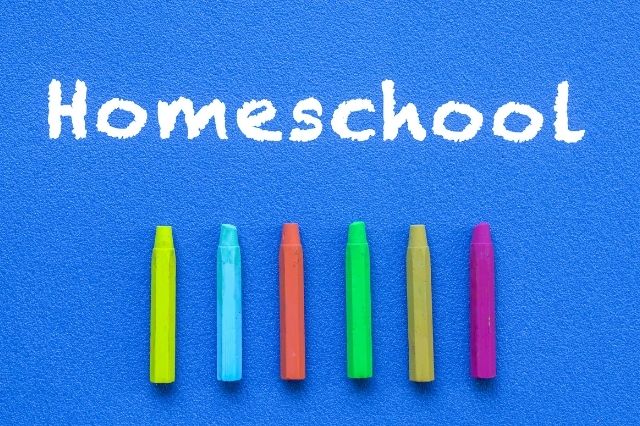What Do You Need to Homeschool Your Child?
You’ve heard about homeschooling, and it’s something you’d like to consider, now that we have a pandemic that seems not to slow down any soon.
Homeschooling is the practice of educating your child instead of sending them to school. It is a practice that has grown in popularity over the years, with the United States hitting 2 million homeschooled children.
However, there are set guidelines and requirements needed. These requirements will vary depending on the state you live in.
This article will focus on what you need to homeschool your child. So if you are looking forward to homeschooling your child, this article will help you a great deal.
Let’s cut to the chase.
What Qualifications Do You Need to Homeschool Your Child?
Eleven states in the United States require parents to meet some requirements before they can homeschool their children. These states include:
- West Virginia
- Georgia
- New Mexico
- Ohio
- North Carolina
- South Carolina
- Washington
- North Dakota
- Tennessee
- Virginia
- Pennsylvania
The general requirement by most states is a high school diploma or GED. However, if you live in Washington, you’ll need to have college credits to homeschool children.
Apart from the eleven states, the remaining states will allow parents to homeschool their children regardless of their educational background.
How Can I Avoid These Qualifications?
I guessed it right. You are in a dilemma because you happen to live in the eleven states mentioned above. So you’re wondering how you can bypass these requirements.
Good news because out of the eleven states, you can bypass these requirements in six states. These six states include:
- West Virginia
- Washington
- North Dakota
- Tennessee
- Ohio
- Virginia
And you can bypass the requirements in the above states in the following ways:
- Virginia, Washington, and Tennessee allow parents with the required qualifications to homeschool children through an umbrella school or, in Virginia, through religious exemption.
- Ohio, Washington, and North Dakota will allow you to homeschool your child, but under a certified teacher’s supervision.
- Washington, Virginia, and West Virginia allow superintendents to loosen their educational requirements.
That said, parents from the remaining five states must fulfill the required standards to homeschool children.
Teacher Qualifications As Per States
As we have discussed above, only eleven states in the United States require parents to meet some educational requirements before homeschooling children.
While this is what these states have as requirements, there are no bodies mandated to inspect or check if parents meet these requirements. So technically, parents can homeschool their children without meeting these requirements.
All the same, these guidelines are meant to help parents determine whether they’ll give the best to their children. So we must cover the educational requirements per state, shall we?
- Georgia: If you reside in Georgia, you’ll be required to have at least a high school diploma or GED.
- New Mexico: You will need a high school diploma or an equivalent to homeschool in New Mexico.
- North Carolina: Same as New Mexico – a high school diploma or its equivalent.
- North Dakota: If you reside in North Dakota, you’ll need a high school diploma, GED, or be supervised by a qualified teacher as you homeschool.
- Ohio: You’ll need to be supervised by a professional with a bachelor’s degree if you don’t have a high school diploma or GED.
- Pennsylvania: You’ll need a high school diploma or its equivalent to homeschool in Pennsylvania.
- South Carolina: Same as Pennsylvania – a high school diploma or its equivalent.
- Tennessee: You need a high school diploma or GED, except for those parents homeschooling under an umbrella school.
- Virginia: You must have a high school diploma, teaching certificate. Also, parents can homeschool through a correspondence program. However, those homeschooling under religious exemptions do not need to meet any of these requirements.
- Washington: The requirements in Washington are a little bit stiff. You’ll need to be supervised by a certified professional, have a variety of college credits, and go through a home-based course.
- West Virginia: You will need to have a high school diploma, its equivalent, or be pronounced qualified by a school board or superintendent.
What Supplies Do You Need to Homeschool?
Homeschooling is not just about educational requirements. You’ll also need some supplies to make sure your child gets the best out of the home-based program. Below are the homeschool supplies you’ll need both for your child and you as a parent-teacher.
Student Supplies
- Lined and graph papers. You’ll need these supplies at least once a year.
- You will need pencils. You may either need decorative or Ticonderoga pencils, depending on your needs.
- You’ll also need glue to use on different occasions. Don’t worry about their stickiness because they can dry after a short time, making them mess-free, especially children.
- You will also need paint and brushes. One that’s common is the tempera.
- Sheets of paper. Alternatively, you can use rolls of butcher paper.
- Colored construction paper
- Dry erase markers
- Washable Crayola. These will give you peace of mind. Colored markers, pencils can all be washed.
- Kids-rounded scissors
- You’ll also need counters. You can use anything you can think of – matchbox cars, glass, beads, beads, rocks, bingo; you name it. Just make sure that your child can relate to them.
- Wooden craft sticks. You’ll need them to help your child build structures, among other things.
- A dot marker set. You’ll need this at one point in time, so include it on your supplies list.
Teacher Supplies
- Laminator. You may choose to laminate some papers or choose not to. However, most homeschoolers agree that laminators are essential when homeschooling. You can get a laminator for around $30 at Walmart and another $14 for refill packets.
- This is critical, especially if you’d like to keep your child’s papers in an organized place.
- You’ll need to sharpen your child’s pencils, and therefore you need a pencil sharpener. There are many pencil sharpeners in the market, so you need to make sure you get the best. A good pencil sharpener would go for around $24.
- Mavalus tape. To some parents, this will not be necessary. The reason why it’s better compared to a masking tape is that it sticks nearly everything on the wall and doesn’t remove paint.
- Stapler and staple pins. You need these to staple papers so they can be in one place and stay organized.
- Workboxes
- Whiteboard. You’ll need this to illustrate what you’re teaching. The 5 by 6 one is the best size, and you can find them on Craig’s List.
- Calendar poster.
Can I Temporarily Homeschool My Child?
So can I temporarily homeschool my child? Yes, you can temporarily homeschool your child and later take them back to a public school.
There are many circumstances under which parents may decide to homeschool their children temporarily. In this section, I will walk you through these circumstances.
Circumstances When You Can Temporarily Homeschool
1. Negative School Situation
Temporary homeschooling might turn out to be an option for most parents if there’s a negative school situation they want to avoid. In most cases, the chances are that both you and your child have tried all the possible means to avoid these negative situations but to no avail.
Some of the negative school situations parents would want to avoid include bullying, a dangerous environment, peer influence, poor teacher teaching methods, long bus rides, child humiliation at school, or if the child requires special attention.
2. School Refusal
Let’s be honest; some children will not love the idea of attending lessons in school due to various reasons. As a parent, it’s not a wise decision to force your child to go to school if you can homeschool them.
Forcing them could lead to them being truants, which won’t be a good sign, too. Therefore, arrange for a homeschooling program if you notice your child is avoiding school.
3. Academic Remediation
Some parents may opt to homeschool their children if they are behind or learn slowly. Extra one-on-one learning can help boost your child’s understanding, contrary to what is given while at school.
However, before you start homeschooling your child due to their academic challenges, you need to research the best teaching criteria for students behind in school.
Once your child has caught up, you can let him rejoin their public school and continue with their usual learning.
4. Special Needs
Some parents may consider temporary homeschooling when their child has special needs that the current school is not meeting.
Sometimes, opting out of an adamant school to take care of your child’s needs can prove to be a blessing in disguise. However, you need to make sure that you understand your child’s needs well before starting him or her on a homeschool program.
Once your child can come with and sustain the pressure that comes with public schools, you can re-enroll them to continue with the rest of other students.
5. Parent’s Health
Some families choose to homeschool their children when their parents suffer from an illness or a serious health condition. Now, the parent will not walk the child through the homeschool program, but a family member will.
From this, the parent can benefit from the time they spend together with the child and the family member. Sometimes, all a sick person needs is that closeness. You give them hope and make them feel like they are still part of the family.
6. Child’s Physical Health
There’s a lot of pressure that comes from regular public schools. Children with physical health problems may not cope well with all these school activities. So it would be wise to homeschool such a child.
However, you need to understand that homeschool and homebound and two different things, with different laws. Some states won’t allow you to cross over to homebound from homeschool. So make inquiries and know what your state laws dictate.
Bottom Line
Homeschooling doesn’t have to cost an arm and a leg, and most importantly, you must never have everything to get started with homeschooling. And like we saw in some states, you don’t even need the academic qualifications to homeschool. If you’re out to homeschool, get started now and stop giving it a raincheck.







